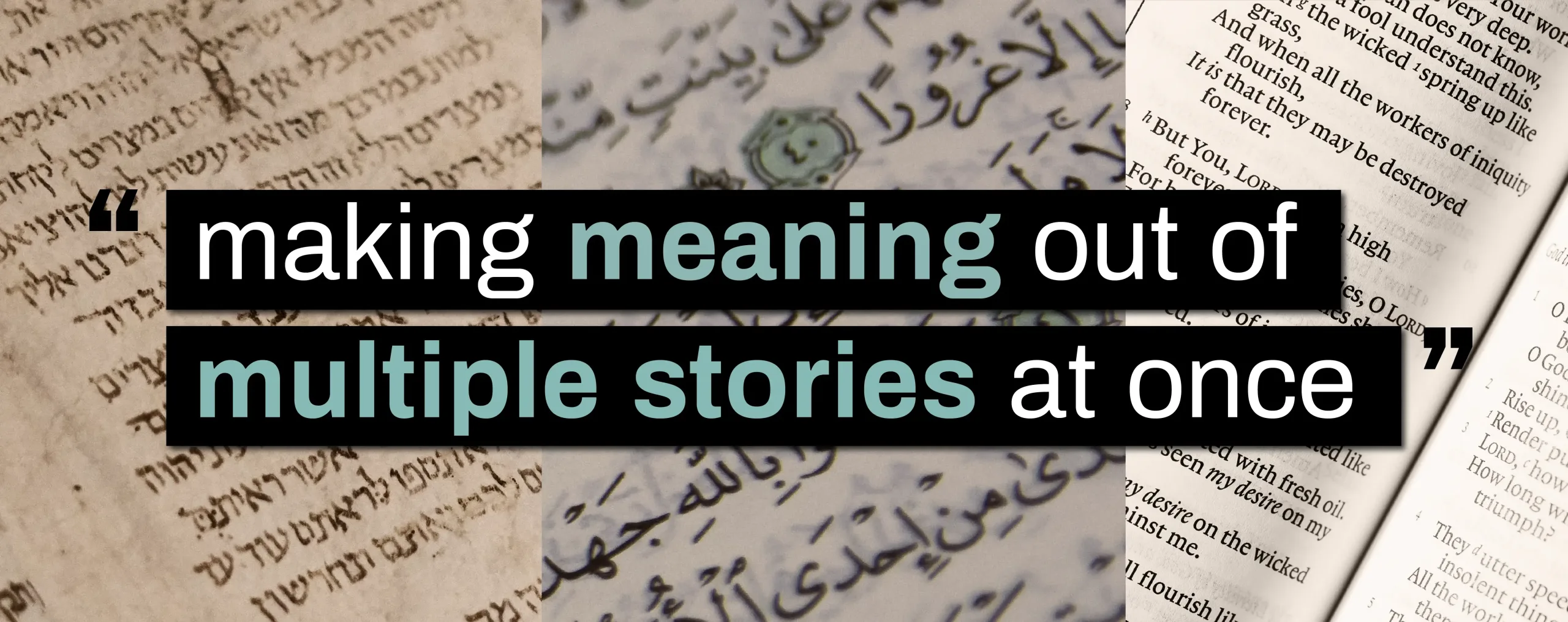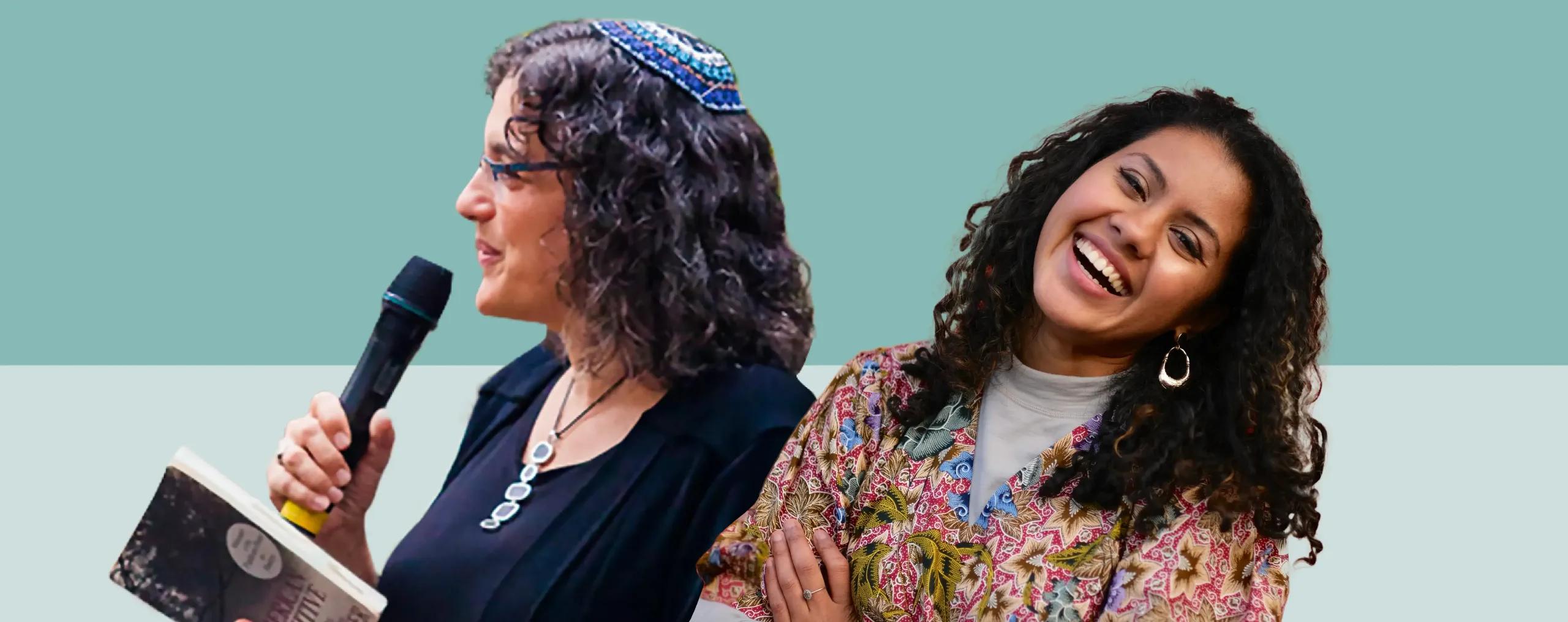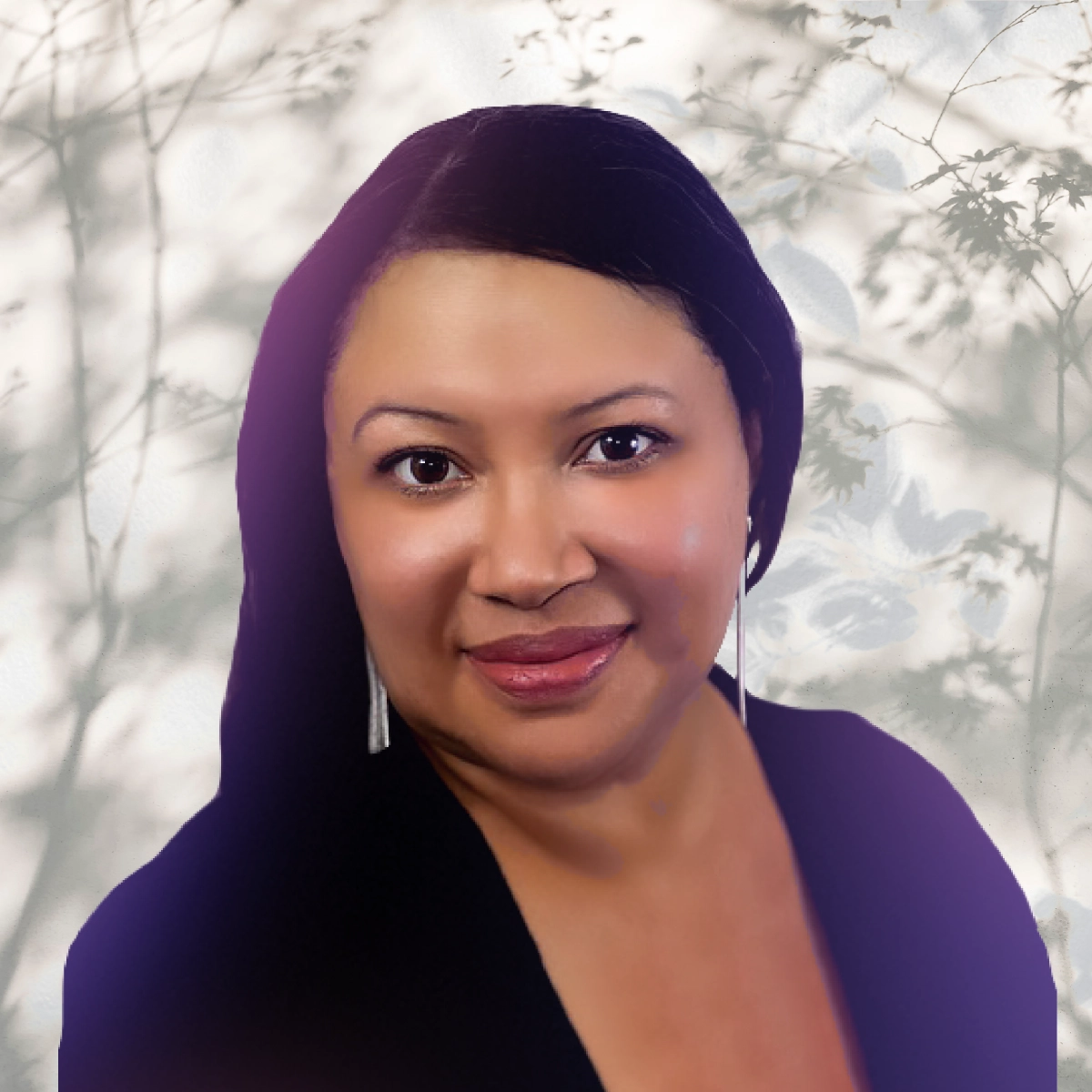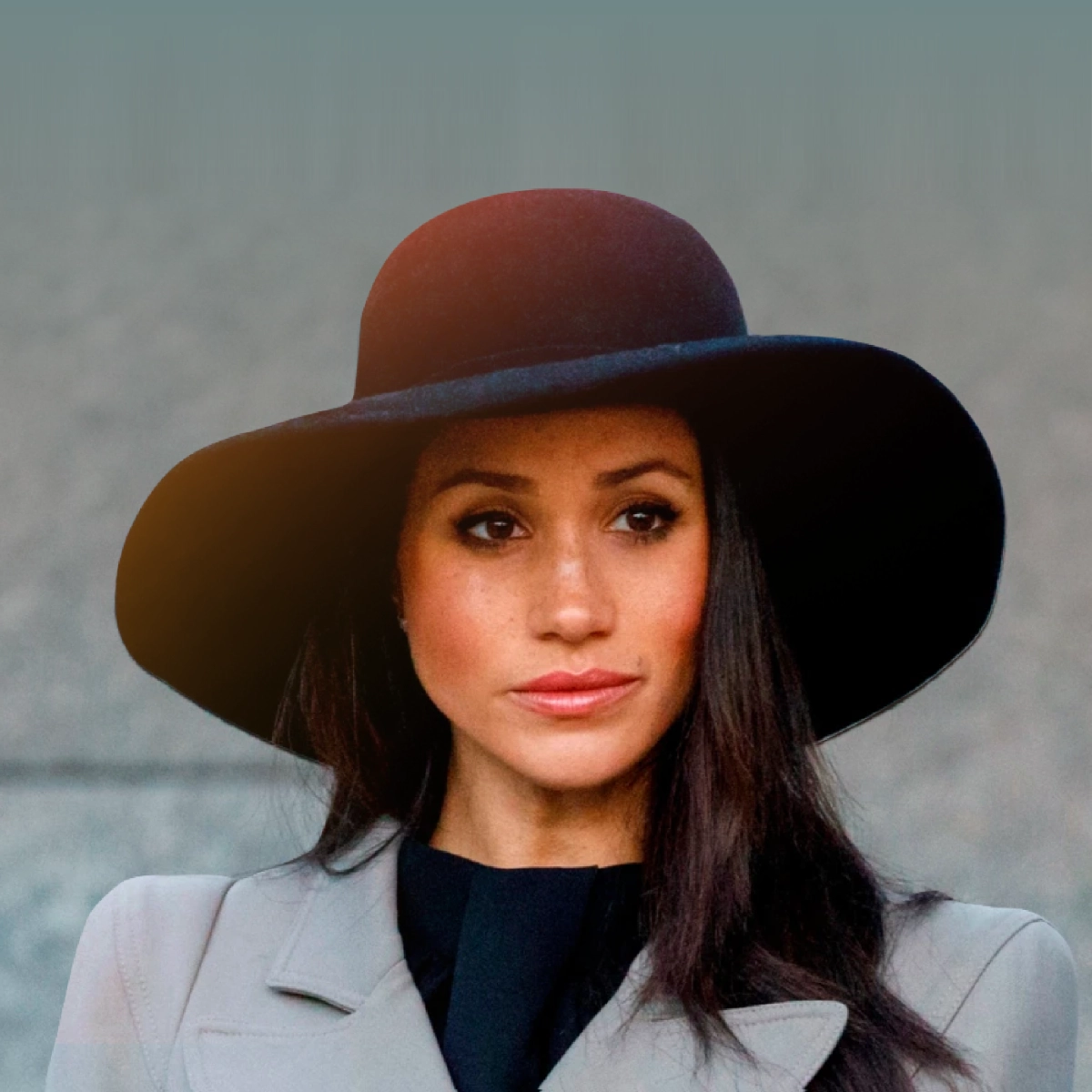December’s meetup was filled with wisdom, knowledge, and “meeting people on a heart level” with our speakers Riyana Zafira Razalee and Rabbi Marjorie Berman. This was the first Mixed Space meetup that highlighted interfaith experiences and mixed religious identities. We discussed the history of faith systems and how our varying constructs of language and time shape our view of the world. We went over the multitude of winter holidays happening across different religions and cultures. Lastly, we learned methods of making interfaith relationships work healthily, as well as how we can and are already welcoming a globalized relationship to faith.
TMS founder Lili Stiefel and our champion emcee Ariel Bastida warmly welcomed and introduced our speakers to an audience who zoomed-in from across the globe. Ancestral land acknowledgements were recognized and presenting identities were affirmed. Our hosts established, as always, our community guidelines so that everyone knew our best practices for engaging dialogue and how we all can feel optimally welcomed and included so as to freely express ourselves in a safe mixed space.
Rabbi Marjorie Berman (she/her/hers) is a Spiritual Director at the Reconstructionist Seminary and teaches at Society Hill Synagogue in Philadelphia. Rabbi Marjorie studied Comparative Religion at Earlham College, and in 2003, she graduated from the Reconstructionist Rabbinical College. Her passions include interfaith work, counseling, and bringing life to Jewish texts, history, and ritual where she incorporates artistic and meditative elements into her teaching and worship-leading.
Rabbi Marjorie began by laying the groundwork of how all religions are made up of stories, sacred and treasured, that have an underlying literary architecture. Stories are composed of languages whose building blocks are words, and depending on which language we use to tell these stories, and how those languages function, changes the way we interpret and tell each story. For example, the Hebrew language is context based while the English language is vocabulary based, so the amount of words and the structure of words in each of these languages is very different. These linguistic and narrative constructs shape how we view, experience, and move through the world. The stories we fashion are active and carry great weight; we must create them with responsibility, ethics, inclusivity, and peace.
Beyond language, she further explained how our interpretations and experiences of time differ. Time is a construct created by humans and therefore has both linearity, non-linearity, and cyclicity, resulting in multiple varieties of calendar systems: solar calendars, lunar-solar calendars, and lunar calendars, respective to various faith systems. The way that these time systems operate cause a “sliding effect” and fluidity in when celebrations are commenced and experienced. Some religious holidays occur at the same time each year, while some religious holidays move around more based on their own respective calendar systems.
Rabbi Marjorie went on to preview the different religious holidays that fall around this time of year in Earth’s Northern hemisphere, when the days are darkest. She pointed out the common motif in many religious celebrations around the solstice which is the metaphor of light, warmth, goodwill, cheer, and acts of kindness and service.
Rabbi Marjorie noted that “making meaning out of multiple stories at once” is something that has caused discomfort and historical violence, but it can also be the very thing that saves us. Being of mixed ancestry and/or religious identity or affiliation creates both complexity and opportunity, conflict and friction as well as enlightenment and growth.
Being mixed during this time of year can be emotionally exhausting for many reasons. Considering the ways language and time function through various religions, as well as the history and political nature of religion, people can find themselves vulnerable to harassment and dominance from majority cultures. This can cause discrepancy and uneasiness, especially in those of us who hold multiple religious identities at once or within our families and friends. This is why conversations like this one are so important.
“When you have a mixed background and infuse narratives you can no longer make someone an ‘other.’ We can make meaning out of our lives,” Marjorie notes.
“Human Civilisation is understood through Language, Topography, and Calendars.” – जिצורי Peter Johannessen Osisi (meetup attendee commenting in chat)
Our next speaker was Riyana Zafira Razalee. Riyana is passionate about two things: reconnecting people with love (interfaith relationships) and land (regenerative agriculture). She is the host of “An Act of Faith” (@anact_offaith), an upcoming podcast that highlights interfaith relationships and seeks to find secrets that make navigating through it easier. Her roots are deeply Malaysian and her world views are expansively global. Riyana noted that everything she was sharing was from personal experience, and that from a Muslim perspective, it hasn’t always been the easiest thing to do.
“There is such a convergence between religion and culture,” Riyana says. “At times people use it to attack interfaith spaces and relationships. We have to engage without demonizing any particular faith or culture.”
Riyana spoke about these relationships not being limited to just romantic partnerships, but with family relationships, friendships, work relationships, community relationships, or any variety of relationships within the human experience. Riyana has great first-hand experience in Interfaith relationships and their navigation. She notes that “tons of people” are in them in modern times, but that the phenomenon is ancient as well, noting the historic examples of Christians from Yemen visiting Medina and being invited to pray at a mosque, and when the Prophet Muhammed himself engaged in Interfaith dialogue with Jews.
Riyana spoke about openness and vulnerability being crucial to successful Interfaith relationships, as well as directness and reciprocity.
“You have to figure out what works for your specific situation,” Riyana says. “Face the issue straight up. Bring it up and ask the hard questions. But don’t make it the crux of your existence. Put aside the religious thing and look at it from the perspective of an individual character and you will find what you need. Some people need to engage in self-exploration of their religious identity without their partner being directly involved first so that they can engage in a relationship knowing who they are and as their best selves.” For instance, a Muslim and Christian couple may attend an Islamic class together or Bible study.
The establishment and clarification of cultural codes are also important, according to Riyana’s experiences. She said that how this season’s holiday celebrations are observed can differ where you are on the planet, even within the same encompassing faith system. For instance, she notes, in Malaysia, Eid is celebrated for a whole month, and it is common for celebrants to go from household to household where there is a general attitude of openness and celebratory observance. This is not necessarily practiced in the same way in other countries; for instance, in much of the United States, celebrations may be relatively restricted in timing and location.

In response to a question about creating a globalized relationship to faith, Riyana shared a personal story about how she was seated on the NYC subway on a Friday and it is within the Muslim tradition to read from the Quran on that day. She noticed while reading her Quran, an observant Jewish man with a kippah and tzitzit entered the subway car, and began reading from the Torah. Then, a woman entered and was reading a book on Buddhism. Riyana noted this beautiful moment as being an example of a world where faith is globalized and welcomed together in one space. If we all engage with one another and don’t remain fixed in a bubble, we can make opportunities for meaningful discussion across religious identities.
She also noted the Golden Rule of Confucianism, to treat others the way you wish to be treated, which can be found across pretty much all other religions. With that spirit, we can have respect for one another and find common ground in interfaith encounters. For example, when Zaytuna College in San Francisco (founded as a Muslim college) was the chosen buyer of a Christian church on campus and they needed to have a cross removed; the college chose to honor and preserve the integrity of the cross by reaching out to the Christian community for help in the process.
It was with great acumen and insight that Riyana cited the song “You’ve Got To Be Carefully Taught” from the 1949 Rodgers and Hammerstein musical “South Pacific,” which illustrates the phenomenon of otherization and cultural conditioning being what ultimately leads to hatred, because we are born without these prejudices and as children, we can interact with one another peaceably and with love. This was in response to a question about how spirituality is a way to experience people.
The way we experience other people is a great culmination of the entire meetup discussion, understanding differences in language and time and religious beliefs. We chose to see each other as fellow humans, see each other’s character and have respect for one another’s views, because sometimes those views end up living together in one person.
Our audience was moved to tears more than once by the impactful teachings of our guest speakers, and the dialogue and discovery that happened in breakout rooms, which are kept private. Takeaways on the whiteboarding phase of the event were that “stories shape us and can save us”, and that “language defines the way we see the world.” Audience members stressed the importance of oral storytelling traditions and their equal validity to the usage and history of written texts, and how the nature of the Bible being able to be a bestseller has an underlying violence of genocide and colonialism, erasing the populace and traditions of Indigenous cultures. There was also an appreciativeness of The Mixed Space being “a mixed space” where there was room for this conversation, and the opportunity for these stories and experiences to be highlighted and celebrated.

Meetup participant and new TMS friend Miguel introduced us to the term “trancestors,” who came before us courageously challenging the gender binary, as well as those of his familial ancestry. What we are is a confluence of many different influences, genetic and cultural, and we can forge a new future out of these.
Once again we appreciate everyone’s hard work in organizing, designing, and promoting this wonderful event, and for everyone who came and contributed. We hope everyone was able to take away something from this incredibly valuable meetup.
Goodies from the Chat:
Links Shared:
TMS December Booklet
https://themixedspace.com/wp-content/uploads/2021/11/TMS_December_Booklet.pdf
Land Acknowledgement that TMS loves
https://cimcc.org/
Tri-Faith Initiative
White Moon (from Rabbi Marjorie)
https://www.youtube.com/watch?v=5naRZ6AL824
Monthly Donation Organization: 18 Doors
https://18doors.org/
January Meetup | Multidimensional Healing
https://themixedspace.com/january-meetup-multidimensional-healing/
The wedding night poem by Rumi for anyone that’s interested: (from Riyana)
https://www.poemofquotes.com/mawlawirumi/wedding-night.php
Movie trailer for Lemon Tree
https://youtu.be/e_j1llK3Fco
Riyana’s Social Tags
@reecurl
@anact_offaith
Meetup Survey Feedback Form
https://forms.gle/h9FRLKxsMRSb8WkL9
Pavini Moray – teacher – “transcestors”
https://wellcelium.org/teachers/pavini-moray/
A great free platform and online community for authentic relating and storytelling
https://warmspace.io/?i=EekgLQ%7CCtg
Quotes:
“LANGUAGE DEFINES THE WAY WE SEE THE WORLD” – @lilistiefel
“linguistics is a spiritual and magical rabbit hole” – @isabellerizobvp
“In Christianity, the paschal calendar is lunar and the advent calendar is solar, so there are two calendars.” – Seraphim
“Yes,today is Jumada I ,10 1443 AH(After Hijraa) / December 14,2021” – Hatice Sema Bozcali
“Sankta Lucia is Yesterday. The Islamic Festival to mention are Ramadan Eid Il Fitr, Hajj, Eid Ul Adha, Muharram, Ashura… and then, as said before, that it rotates throught the Seasons.” – जिצורי Peter Johannessen Osisi
“It’s interesting the Hanukkah (as a holiday, the feast of dedication) is actually first mentioned in the Christian scriptures, rather the Jewish ones.” – Seraphim
“Native Tradition has a Mid Winter gathering. / Also, there’s the huge joint, Lunar New Year in Chinese and East Asian Tradition. Lohri is a festival celebration in Sikhi Tradition” – जिצורי Peter Johannessen Osisi
“Spirituality is also a way to experience nature, and nature is a way to experience spirituality.” – Jeffrey Heinbach
“Practice the CALM principles: Be Compassionate, Accepting, Loving, and Merciful.” – Sara MacDonald @saralmacdonald (Twitter handle)
“True Colors by Cindi Lauper is healing me and all of my ancestors who were forced to live in the closet to survive. 🌈🙏 Peter your share made me realize I want to sing it with other people – thank you.” – Miguel
“I sing “One Day” a LOT in my head. The only part I have an issue with is where it says “all my life I’ve been waiting for” and now I’m thinking I’m done waiting – it’s time to start making the change and I LOVE that this group is part of the action of making the change. Sometimes I lay under the moon
And thank God I’m breathin’
Then I pray, “Don’t take me soon
‘Cause I am here for a reason.”
Sometimes in my tears I drown
But I never let it get me down
So when negativity surrounds
I know some day it’ll all turn around because
All my life I’ve been waitin’ for
I’ve been prayin’ for
For the people to say
That we don’t wanna fight no more
There’ll be no more war
And our children will play”
– Alexandra Szameit (https://www.facebook.com/EkaSzameit )
“IN LAK’ECH
Tú eres mi otro yo.
You are my other me.
Si te hago daño a ti, I
f I do harm to you,
Me hago daño a mi mismo.
I do harm to myself.
Si te amo y respeto,
If I love and respect you,
Me amo y respeto yo.
I love and respect myself.
– Luis Valdez
IN LAK’ECH
Tú eres mi otro yo.
You are my other me.
Si te hago daño a ti,
If I do harm to you,
Me hago daño a mi mismo.
I do harm to myself.
Si te amo y respeto,
If I love and respect you,
Me amo y respeto yo.
I love and respect myself.”
– Sara MacDonald @saralmacdonald (Twitter handle)





